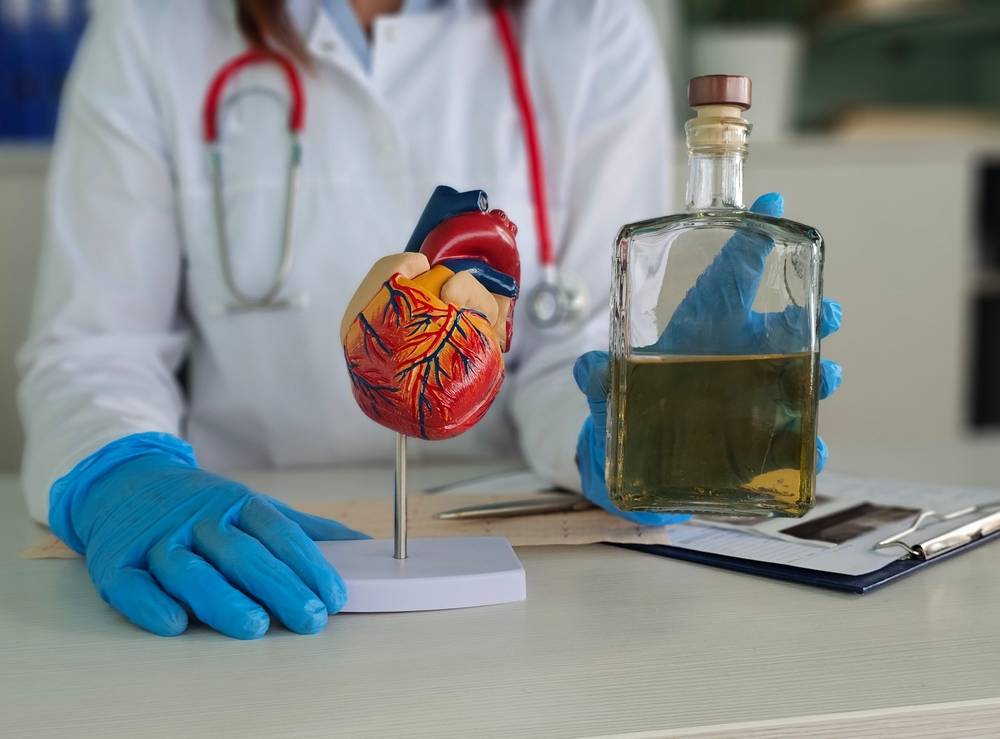Have you ever felt your heart racing or skipping a beat after a night of drinking? Do you find yourself wondering if your occasional drink could be the reason behind your persistent chest pains or shortness of breath? You’re not alone. Many people across India often brush off these signs, attributing them to stress or everyday fatigue. But what if your heart is trying to tell you something more serious about your drinking habits?
Alcohol often raises eyebrows when it comes to heart health, and understandably so. You might’ve heard mixed messages: some say a glass of red wine can be heart-healthy, while others warn that even moderate drinking might escalate risks. So, what’s the real story behind alcohol and your heart? Let’s dive in and explore!
Contents
- 1 Is Alcohol Safe for Heart Patients?
- 2 How Do I Know if My Heart is Damaged from Alcohol?
- 3 What Is Considered Heavy Drinking?
- 4 Long-Term Effects of Alcohol on the Heart
- 5 How Alcohol Raises Blood Pressure
- 6 What Happens If You Drink Alcohol with Heart Medication?
- 7 Can Cutting Alcohol Improve Heart Health?
- 8 Final Thoughts
Is Alcohol Safe for Heart Patients?
If you have heart problems, you might wonder whether it’s okay to have a drink occasionally. The simple truth is that alcohol can be risky for people with heart issues. Drinking regularly or heavily can make heart conditions worse by increasing blood pressure, causing irregular heartbeats, and weakening the heart muscle. Even moderate drinking might not be safe, depending on your specific heart health and medications.
Always speak with your doctor about whether it’s safe for you to drink alcohol and how much might be acceptable in your situation.
How Do I Know if My Heart is Damaged from Alcohol?
 It can sometimes be difficult to recognize if alcohol has harmed your heart, especially early on. However, there are common signs you should look out for:
It can sometimes be difficult to recognize if alcohol has harmed your heart, especially early on. However, there are common signs you should look out for:
- Feeling breathless or short of breath, especially with mild activity or when lying down.
- Experiencing fatigue or tiredness more easily than usual.
- Swelling in your legs, ankles, or feet.
- Irregular heartbeats or palpitations, which feel like your heart is racing, fluttering, or skipping beats.
- Chest pain or discomfort, particularly after drinking alcohol.
Long-term heavy drinking can lead to serious heart issues like high blood pressure, irregular heartbeat (arrhythmia), and alcoholic cardiomyopathy, a condition where your heart muscle becomes weak and struggles to pump blood effectively. If you notice these signs, it’s essential to see a healthcare professional promptly for evaluation and guidance.
What Is Considered Heavy Drinking?
The definition of heavy drinking can vary depending on the type of alcohol and how frequently it is consumed. According to health guidelines:
- One standard drink is typically:
- 330 ml of beer (roughly one bottle)
- 150 ml of wine (about one glass)
- 45 ml of spirits (like whisky, rum, or vodka)
- For men, more than 2 drinks per day (or more than 14 drinks per week) is considered heavy drinking.
- For women, more than 1 drink per day (or more than 7 drinks per week) is considered heavy drinking.
Binge drinking is defined as consuming a large amount of alcohol in a short period, usually:
- 5 or more drinks for men within 2 hours
- 4 or more drinks for women within 2 hours
Heavy or binge drinking increases the strain on your heart and can quickly worsen heart-related problems. If you find yourself drinking frequently or in large amounts, it’s important to reflect on your habits and seek guidance from a healthcare provider.
Long-Term Effects of Alcohol on the Heart
 Consuming alcohol regularly over a long period can have serious impacts on your heart health. Some of the most concerning long-term effects include:
Consuming alcohol regularly over a long period can have serious impacts on your heart health. Some of the most concerning long-term effects include:
- High Blood Pressure: Regular drinking can significantly raise your blood pressure, increasing your risk of heart attack and stroke.
- Arrhythmia (Irregular Heartbeat): Chronic alcohol use can cause irregular heart rhythms, potentially leading to serious complications like stroke or sudden cardiac death.
- Heart Failure: Persistent heavy drinking can weaken your heart muscle, leading to a condition known as alcoholic cardiomyopathy, where the heart cannot pump blood effectively.
- Stroke: Alcohol increases the risk of both ischemic stroke (caused by blockage) and hemorrhagic stroke (caused by bleeding).
Understanding these effects can help you make informed decisions about alcohol consumption, especially if you already have heart concerns.
What is Alcoholic Cardiomyopathy?
Alcoholic cardiomyopathy is a serious condition that develops due to chronic, heavy alcohol use. In simple terms, it means that alcohol has weakened your heart muscle, making it harder for your heart to pump blood effectively throughout your body.
Common symptoms include:
- Shortness of breath, especially during activity
- Fatigue or feeling excessively tired
- Swollen legs, ankles, or feet
- Persistent coughing, particularly at night or when lying down
- Irregular heartbeats or palpitations
If alcoholic cardiomyopathy is left untreated, it can lead to severe complications, including heart failure, permanent heart damage, and even death. Early diagnosis and reducing or stopping alcohol consumption can significantly improve your heart health and quality of life.
How Alcohol Raises Blood Pressure
Alcohol can directly influence your blood pressure in several ways. When you consume alcohol, it temporarily raises your blood pressure by constricting blood vessels. Over time, regular drinking can lead to consistently high blood pressure (hypertension). This chronic hypertension puts extra strain on your heart, forcing it to work harder than it should, eventually increasing your risk for serious health issues like heart attacks, strokes, and heart failure. Reducing or avoiding alcohol is often recommended to manage and lower your blood pressure effectively.
What Happens If You Drink Alcohol with Heart Medication?
 Mixing alcohol with heart medication can be dangerous. Alcohol can interfere with the effectiveness of many heart medications, making them less effective or causing harmful side effects. Some potential risks include:
Mixing alcohol with heart medication can be dangerous. Alcohol can interfere with the effectiveness of many heart medications, making them less effective or causing harmful side effects. Some potential risks include:
- Increased dizziness or fainting
- Sudden drops in blood pressure
- Irregular heartbeats or worsening arrhythmias
- Liver damage, particularly when combined with medications metabolized by the liver
Always consult your doctor or pharmacist about drinking alcohol while taking any heart medications to ensure your safety and proper management of your heart condition.3
Can Cutting Alcohol Improve Heart Health?
Yes, cutting down or quitting alcohol can significantly benefit your heart—especially if you already have a heart condition or are at high risk. Here’s how it helps:
- Lowers Blood Pressure: Reducing alcohol intake can lead to noticeable drops in blood pressure, decreasing strain on the heart.
- Improves Heart Rhythm: Avoiding alcohol may prevent irregular heartbeats and reduce the risk of stroke.
- Strengthens the Heart Muscle: In cases of alcoholic cardiomyopathy, stopping alcohol can allow the heart to recover and function better.
- Reduces Risk of Further Damage: Cutting alcohol lowers your chances of worsening existing conditions like heart failure or arrhythmia.
Even small changes—like limiting the number of drinks per week—can make a positive difference. If you find it hard to reduce drinking, consider seeking help from a healthcare professional or support group.
Final Thoughts
If you’re still wondering whether alcohol could be behind your heart symptoms, don’t wait for things to get worse. The sooner you act, the better your heart can heal. Every drink you skip could mean a stronger heartbeat and a longer, healthier life.
If you’re experiencing any heart-related issues or simply want peace of mind, talk to a specialist today. At MantraDoc, our licensed cardiologists are just a click away to help you manage high blood pressure, arrhythmias, or any heart-related concerns.
👉 Click the button below and connect with an expert cardiologist now!

